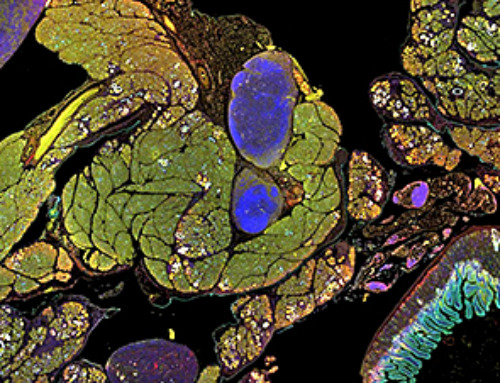As the deadly disease that came to be known as COVID-19 started spreading in late 2019, scientists rushed to answer a critical question: Who is most at risk?
They quickly recognized that a handful of characteristics—including age, smoking history, high body mass index (BMI) and the presence of other diseases such as diabetes—made people infected with the virus much more likely to become seriously ill and even die. But one suggested risk factor remains unconfirmed more than four years later: cannabis use. Evidence has emerged over time indicating both protective and harmful effects.
Now, a new study by researchers at Washington University School of Medicine in St. Louis points decisively to the latter: Cannabis is linked to an increased risk of serious illness for those with COVID-19.
The study, published June 21 in JAMA Network Open, analyzed the health records of 72,501 people seen for COVID-19 at health centers in a major Midwestern health-care system during the first two years of the pandemic. The researchers found that people who reported using any form of cannabis at least once in the year before developing COVID-19 were significantly more likely to need hospitalization and intensive care than were people with no such history. This elevated risk of severe illness was on par with that from smoking.
“There’s this sense among the public that cannabis is safe to use, that it’s not as bad for your health as smoking or drinking, that it may even be good for you,” said senior author Li-Shiun Chen, MD, DSc, a professor of psychiatry.
“I think that’s because there hasn’t been as much research on the health effects of cannabis as compared to tobacco or alcohol. What we found is that cannabis use is not harmless in the context of COVID-19. People who reported yes to current cannabis use, at any frequency, were more likely to require hospitalization and intensive care than those who did not use cannabis.”
Cannabis use was different than tobacco smoking in one key outcome measure: survival. While smokers were significantly more likely to die of COVID-19 than nonsmokers—a finding that fits with numerous other studies—the same was not true of cannabis users, the study showed.
“The independent effect of cannabis is similar to the independent effect of tobacco regarding the risk of hospitalization and intensive care,” Chen said. “For the risk of death, tobacco risk is clear but more evidence is needed for cannabis.”
The study analyzed deidentified electronic health records of people who were seen for COVID-19 at BJC HealthCare hospitals and clinics in Missouri and Illinois between Feb 1, 2020, and Jan 31, 2022. The records contained data on demographic characteristics such as sex, age and race; other medical conditions such as diabetes and heart disease; use of substances including tobacco, alcohol, cannabis and vaping; and outcomes of the illness—specifically, hospitalization, intensive-care unit (ICU) admittance and survival.
COVID-19 patients who reported that they had used cannabis in the previous year were 80% more likely to be hospitalized and 27% more likely to be admitted to the ICU than patients who had not used cannabis, after taking into account tobacco smoking, vaccination, other health conditions, date of diagnosis, and demographic factors. For comparison, tobacco smokers with COVID-19 were 72% more likely to be hospitalized and 22% more likely to require intensive care than were nonsmokers, after adjusting for other factors.
These results contradict some other research suggesting that cannabis may help the body fight off viral diseases such as COVID-19.
“Most of the evidence suggesting that cannabis is good for you comes from studies in cells or animals,” Chen said. “The advantage of our study is that it is in people and uses real-world health-care data collected across multiple sites over an extended time period. All the outcomes were verified: hospitalization, ICU stay, death. Using this data set, we were able to confirm the well-established effects of smoking, which suggests that the data are reliable.”
The study was not designed to answer the question of why cannabis use might make COVID-19 worse. One possibility is that inhaling marijuana smoke injures delicate lung tissue and makes it more vulnerable to infection, in much the same way that tobacco smoke causes lung damage that puts people at risk of pneumonia, the researchers said.
That isn’t to say that taking edibles would be safer than smoking joints. It is also possible that cannabis, which is known to suppress the immune system, undermines the body’s ability to fight off viral infections no matter how it is consumed, the researchers noted.
“We just don’t know whether edibles are safer,” said first author Nicholas Griffith, MD, a medical resident at Washington University. Griffith was a medical student at Washington University when he led the study.
“People were asked a yes-or-no question: ‘Have you used cannabis in the past year?’ That gave us enough information to establish that if you use cannabis, your health-care journey will be different, but we can’t know how much cannabis you have to use, or whether it makes a difference whether you smoke it or eat edibles. Those are questions we’d really like the answers to. I hope this study opens the door to more research on the health effects of cannabis.”
More information: Griffith et al. Cannabis, Tobacco Use, and COVID-19 Outcomes., JAMA Network Open (2024). DOI: 10.1001/jamanetworkopen.2024.17977, jamanetwork.com/journals/jaman … /fullarticle/2820235
News
Studies detail high rates of long COVID among healthcare, dental workers
Researchers have estimated approximately 8% of Americas have ever experienced long COVID, or lasting symptoms, following an acute COVID-19 infection. Now two recent international studies suggest that the percentage is much higher among healthcare workers [...]
Melting Arctic Ice May Unleash Ancient Deadly Diseases, Scientists Warn
Melting Arctic ice increases human and animal interactions, raising the risk of infectious disease spread. Researchers urge early intervention and surveillance. Climate change is opening new pathways for the spread of infectious diseases such [...]
Scientists May Have Found a Secret Weapon To Stop Pancreatic Cancer Before It Starts
Researchers at Cold Spring Harbor Laboratory have found that blocking the FGFR2 and EGFR genes can stop early-stage pancreatic cancer from progressing, offering a promising path toward prevention. Pancreatic cancer is expected to become [...]
Breakthrough Drug Restores Vision: Researchers Successfully Reverse Retinal Damage
Blocking the PROX1 protein allowed KAIST researchers to regenerate damaged retinas and restore vision in mice. Vision is one of the most important human senses, yet more than 300 million people around the world are at [...]
Differentiating cancerous and healthy cells through motion analysis
Researchers from Tokyo Metropolitan University have found that the motion of unlabeled cells can be used to tell whether they are cancerous or healthy. They observed malignant fibrosarcoma cells and [...]
This Tiny Cellular Gate Could Be the Key to Curing Cancer – And Regrowing Hair
After more than five decades of mystery, scientists have finally unveiled the detailed structure and function of a long-theorized molecular machine in our mitochondria — the mitochondrial pyruvate carrier. This microscopic gatekeeper controls how [...]
Unlocking Vision’s Secrets: Researchers Reveal 3D Structure of Key Eye Protein
Researchers have uncovered the 3D structure of RBP3, a key protein in vision, revealing how it transports retinoids and fatty acids and how its dysfunction may lead to retinal diseases. Proteins play a critical [...]
5 Key Facts About Nanoplastics and How They Affect the Human Body
Nanoplastics are typically defined as plastic particles smaller than 1000 nanometers. These particles are increasingly being detected in human tissues: they can bypass biological barriers, accumulate in organs, and may influence health in ways [...]
Measles Is Back: Doctors Warn of Dangerous Surge Across the U.S.
Parents are encouraged to contact their pediatrician if their child has been exposed to measles or is showing symptoms. Pediatric infectious disease experts are emphasizing the critical importance of measles vaccination, as the highly [...]
AI at the Speed of Light: How Silicon Photonics Are Reinventing Hardware
A cutting-edge AI acceleration platform powered by light rather than electricity could revolutionize how AI is trained and deployed. Using photonic integrated circuits made from advanced III-V semiconductors, researchers have developed a system that vastly [...]
A Grain of Brain, 523 Million Synapses, Most Complicated Neuroscience Experiment Ever Attempted
A team of over 150 scientists has achieved what once seemed impossible: a complete wiring and activity map of a tiny section of a mammalian brain. This feat, part of the MICrONS Project, rivals [...]
The Secret “Radar” Bacteria Use To Outsmart Their Enemies
A chemical radar allows bacteria to sense and eliminate predators. Investigating how microorganisms communicate deepens our understanding of the complex ecological interactions that shape our environment is an area of key focus for the [...]
Psychologists explore ethical issues associated with human-AI relationships
It's becoming increasingly commonplace for people to develop intimate, long-term relationships with artificial intelligence (AI) technologies. At their extreme, people have "married" their AI companions in non-legally binding ceremonies, and at least two people [...]
When You Lose Weight, Where Does It Actually Go?
Most health professionals lack a clear understanding of how body fat is lost, often subscribing to misconceptions like fat converting to energy or muscle. The truth is, fat is actually broken down into carbon [...]
How Everyday Plastics Quietly Turn Into DNA-Damaging Nanoparticles
The same unique structure that makes plastic so versatile also makes it susceptible to breaking down into harmful micro- and nanoscale particles. The world is saturated with trillions of microscopic and nanoscopic plastic particles, some smaller [...]
AI Outperforms Physicians in Real-World Urgent Care Decisions, Study Finds
The study, conducted at the virtual urgent care clinic Cedars-Sinai Connect in LA, compared recommendations given in about 500 visits of adult patients with relatively common symptoms – respiratory, urinary, eye, vaginal and dental. [...]





















